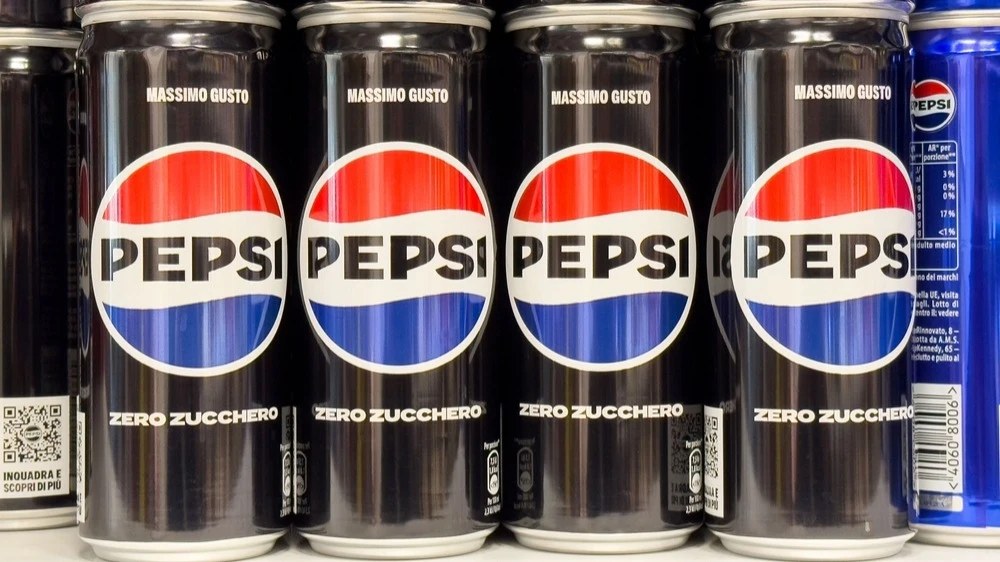"Operating with a sense of urgency": Pepsi reported a strong quarter. Is the crisis behind us?
PepsiCo shares rose by 2.5% in trading on October 9

PepsiCo, which owns brands such as Lay's, Doritos and Mountain Dew, reported quarterly results that some analysts called "encouraging" - amid the company's ongoing business recovery. Sales in North America, closely watched by market participants, fell, but the beverage division in the region posted its best revenue growth in nearly two years. The CEO said PepsiCo is operating "with a sense of urgency" and expects new products focused on healthy eating trends to help support demand.
Details
PepsiCo's results for its third fiscal quarter, which ended Sept. 6, slightly beat Wall Street's expectations. Adjusted earnings per share amounted to $2.29 - three cents above analysts' forecasts, and revenue reached $23.9 billion - that's $100 million more than Wall Street expected, reports Barron's with reference to FactSet data. The company was able to achieve such figures due to stable demand for its snacks and beverages in key international markets, as well as growing interest in healthier beverages in the United States.
Dynamics in the North American market, which was particularly closely followed by investors, turned out to be mixed. Thus, sales volumes in the region showed a decline for the 12th quarter in a row, MarketWatch writes. They fell 3% in the beverage division and 4% in the snacks category. Revenue from food in North America fell by 3%, but from beverages, on the contrary, grew by 2%, which was the best performance in almost two years, notes Bloomberg. The company said the result was due to successful sales of Pepsi Zero Sugar and Poppi, positioned as a healthier alternative to traditional sodas.
What's next
PepsiCo reaffirmed its outlook for 2025, expecting organic revenue growth in the low single digits and adjusted earnings (constant currency) roughly in line with last year.
CEO Ramon Laguerta recalled that the company is undertaking a major restructuring of its business, Yahoo Finance reports. He said it intends to "aggressively reduce costs" in the snacks category in the U.S., including closing two plants and cutting nearly 15% of product lines in the fourth quarter. PepsiCo is also continuing to overhaul its product mix, with plans to eliminate artificial flavors in Cheetos and Doritos products, increase the use of olive oil and avocado oil in its Lay's line, and bet on "healthy" brands - Simply, Sabra, Sun Chips and Siete Foods, the latter of which was acquired this year. The company is also preparing new packaging formats and products with higher protein and fiber content, including Doritos protein chips and updated lines from Quaker, Sun Chips, PopCorners and Smartfood.
"Innovation is key for us, and we are working with a sense of urgency on new products and platforms to address market segments that are growing disproportionately fast," Laguerta said during a conference call with investors (quoted by Yahoo Finance).
How did the stock react
At trading on October 9, PepsiCo shares jumped by 2.5% to $142.3. At the same time, since the beginning of the year the market value of the company has decreased by almost 7%. For comparison: the main U.S. stock index S&P 500 for the same period added about 14.5%, and shares of PepsiCo's main competitor - Coca Cola - rose by 7%.
Context
PepsiCo shares are under pressure amid healthy eating trends. The company is trying to adapt to changing consumer habits and is betting on smaller packages, development of a lineup of healthier products and updated marketing campaigns.
Pressure on PepsiCo increased last month when activist investor Elliott Investment Management disclosed a $4 billion stake in the company. It is pushing for structural changes: calling on the company to cut production and logistics costs by outsourcing low-margin bottling operations and divesting non-core categories (such as pasta, cereal and syrups) to focus on its core brands - Pepsi, Mountain Dew and Gatorade. The fund estimates that such moves could boost profitability and increase the company's market capitalization by more than 50%.
Some analysts are positive about the company's efforts amid the Elliott intervention. "I would characterize these [quarterly] results as moderately encouraging. Clearly, the Elliott Management intervention has forced management to be more proactive - they are now focusing on costs and improving the business," Greg Holter, director of research at Carnegie Investment Counsel, which owns PepsiCo stock, said in a Reuters note.
This article was AI-translated and verified by a human editor
